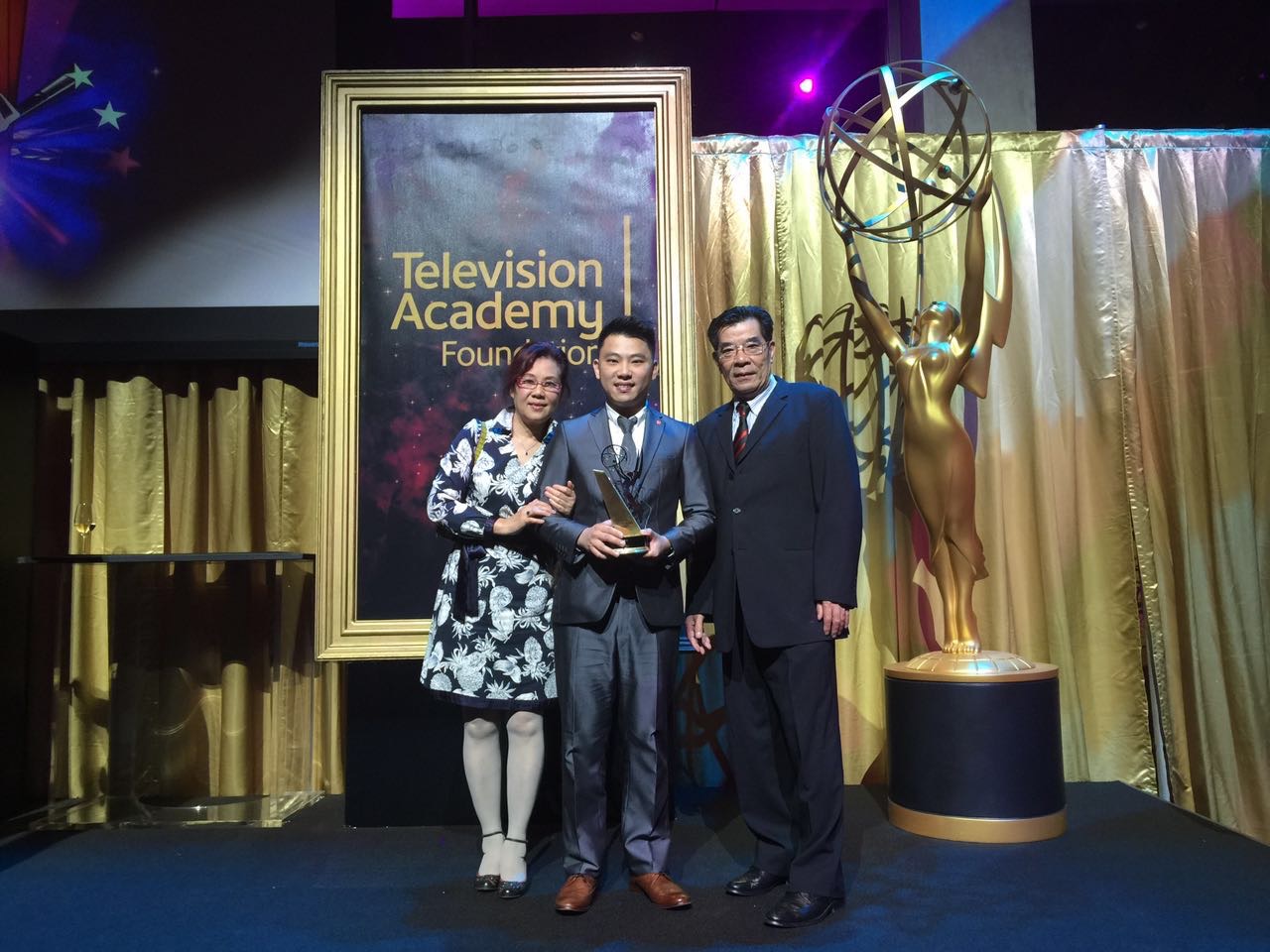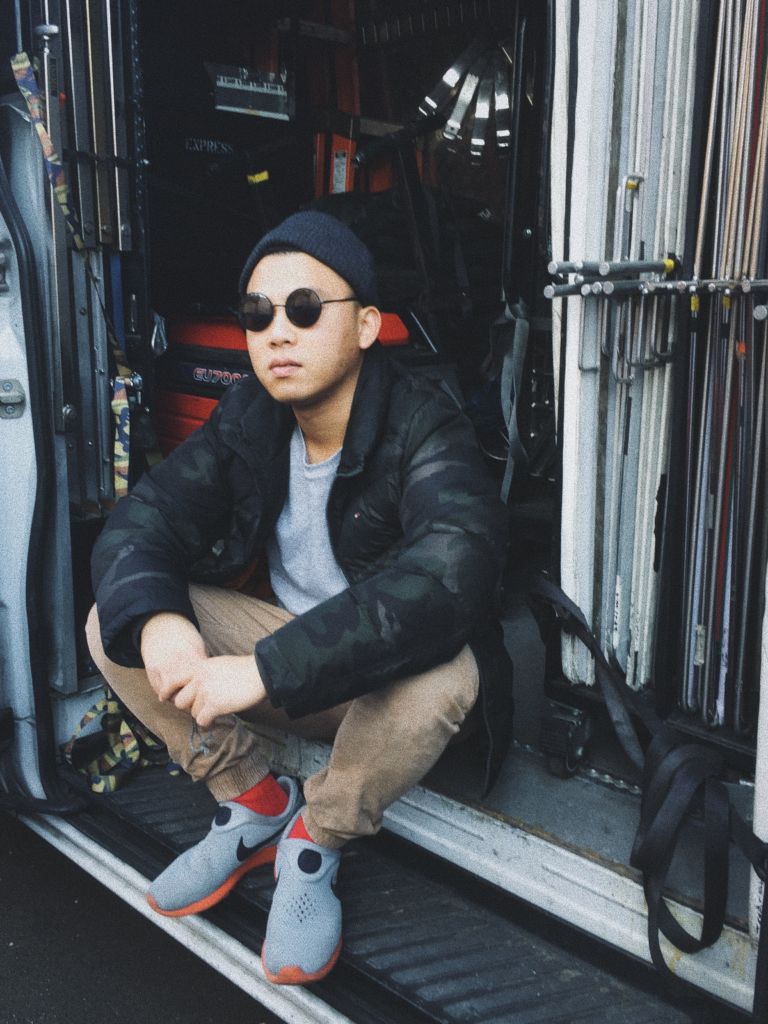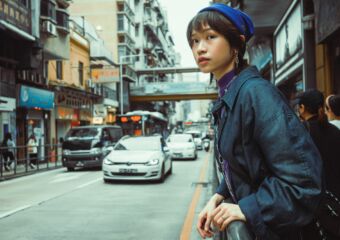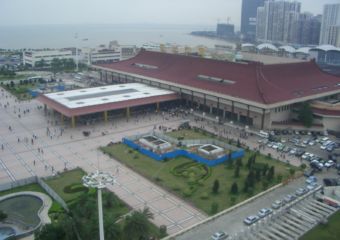Filmmaker Cheok Lei grew up in Macau but now lives and works in Shanghai. Shortlisted at Cannes and a finalist at the New York Festival, Cheok’s career is definitely going places. Although he studied abroad and now works away, he still has a special connection with Macau.
How did you got started with film?
It is a funny story, I sucked at studying in high school and there was an English class I failed all the time. At some point, we were able to submit a video as an examination instead of tradition examination, so I shoot a little video project with my classmates just to get a passing grade [laughs]. From there, I found my talent and started to shoot videos to join different contests. That’s how I started with film.
What is your connection to Macau?
I feel really connected to Macau during the night time. I love walking alone at midnight, which is very beautiful plus it is super super safe in Macau. I think Macau is the safest place in the world. Another thing I love and it might sound funny, sometimes I will go to a casino just to see people gamble because you can see how people lose their mind and bet a million dollars for one single game.
How has Macau shaped you as a filmmaker?
I have to be honest with you. Macau has very limited resources to shape people as a filmmaker, I think it is not only for filmmakers, but any creative-related field. Well, it may be a different story now since Macau government put more resources to offer more workshops and training programs for young people like iCentre, compared to ten years ago when I first started getting into film. But I can see a problem here, you can be an independent filmmaker but it is tough to be a commercial filmmaker since everyone in Macau appreciates film in an artistic way. But hey, the reality is you got to eat if you want to take filmmaking as your career. I think it is a dirty truth people need to know about if they pursue filmmaking as their profession.
Is there one thing that would make the film industry in Macau better?
I think a professional training program is needed, back to my college years, we were forced to train as a grip, gaffer, cinematographer, editor, producer, production assistant so that everyone had a fundamental knowledge of every role in filmmaking. After that, we are able to pick which track you would like to focus on such as director, cinematographer, and editor. It is because when you first start as a filmmaker, it is very important to know everything and you can execute a project by yourself when you have limited resources. I think it is something the Macau film industry is missing, a professional training program.
What makes a great film for you?
A great film for me will be a film that can offer the audience the best experience. Something that can entertain the audience and make them think at the same time. I would say The Arrival would be a perfect example, it was filmed in a very unique and cinematic way, but makes you keep thinking about human beings, life, that we could be related.
When do story ideas hit you?
Articles people share on Facebook and inspiring pictures on Instagram. Recently, I love reading interesting news on this app 好奇心日报 (qdaily.com), they talk about the future and technology.
What role do film festivals play in your life? You were shortlisted for the Cannes young director award in 2015 and a finalist at the New York Festival 2015. Can you tell us more about this experience?
Film festivals to me are a recognition that can push me to keep moving forward and to never stop. I think my best experience so far was the College Emmy Awards, I was 3rd place in the commercial category and my parents went to the gala with me which made them very happy and proud of me. I think seeing them being happy is way more important than any prize I got in any show. When you think about it, an award is just an award, people will say congratulations but the people who really care for you are your parents and they mean everything to me.
What do audiences want? Is it the filmmaker’s role to worry about that?
To me, audiences want to have a great experience just like the user experience from an app perspective. I used to work in a tech company as a creative, and it changed my views as a filmmaker. Of course a filmmaker should worry about the audiences…if you don’t offer them a good experience, how will they be patient to listen to your story?
Do filmmakers have a responsibility to culture? Being a creative person do you feel the need to give back or tell a particular story from Macau?
I think filmmakers have a responsibility to the world, not only to culture. This world is too messed up and there are a lot of videos promoting fake information and misleading messages. Filmmaking could be a brainwashing tool and it is very dangerous, look at ISIS videos, or the beauty standard we see in K-pop music videos. Those videos are brainwashing our young generation and that’s not a good thing. As a filmmaker or any content creator, we must always stay honest, don’t cross the line of morality, and send out the right message.
What message do you hope to send out about your films/stories?
If we don’t talk about business or anything money-related and just on a personal level, I would like to do a dream sequences film because it is something very surreal and we won’t able to explain why and how. It is very exciting to see what other people’s dreams are like.
What’s next?
Man, it is very hard to say. Life is unexpected. Like I would never have imagined I would be working in Shanghai now. I was staying in LA for seven years and suddenly I think I need to move on because I love exploring different lifestyles. Life is short and I don’t want to be stuck in one place.

To learn more about Cheok and his work, visit his website www.cheokfilm.com.


































